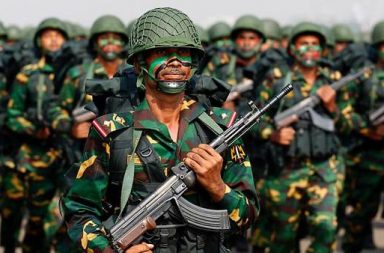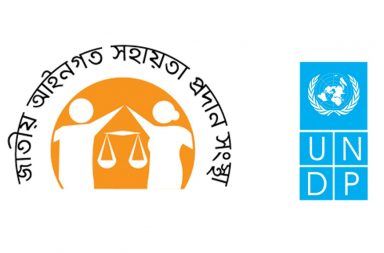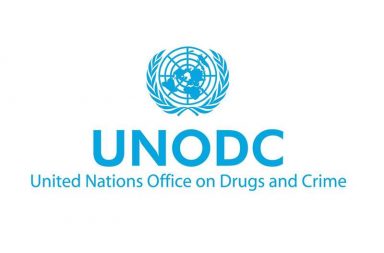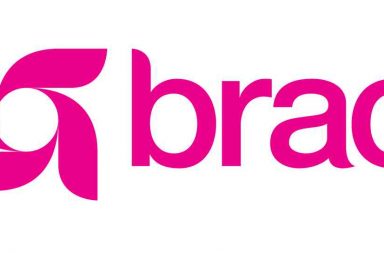By Ali Mashraf
As the new year 2020 dawns upon us, here are the short summaries of 12 significant decisions on human rights/ public interest from the Supreme Court of Bangladesh.
1. Legal Personality of Rivers
In January, the High Court Division (“HCD”), in a bid to save our rivers from drying up, conferred legal personhood upon all the rivers of Bangladesh. Earlier, based on a Daily Star report, Human Rights and Peace for Bangladesh (HRPB) had filed a writ petition questioning the legality of earth filling, encroachment, and development of structures along the banks of Turag river. This is the first-ever instance of our court granting legal personhood to an element of nature.
2. Removal the word ‘Kumari’ (virgin) from Marriage Certificates
In 2014, a writ petition was filed challenging the legality of the word ‘Kumari’ (virginity) in Kabinnama forms on the grounds of discrimination against women and violation of their privacy. The HCD, in September, directed the government to amend Kabinnama forms by removing ‘Kumari’ and inserting the word ‘unmarried’ instead. It also ordered to insert ‘unmarried’, ‘married’, or ‘divorced’ before the groom’s name to indicate the groom’s marital status.
3. Release of children detained by RAB’s mobile courts
The HCD in November issued a suo motu rule ordering the government to immediately release children aged below 12 years, who were detained in child development centers following convictions by RAB’s mobile courts. It also granted six months’ bail to children aged between 12 to 18 years who were convicted by such courts. The HCD asked the authorities to explain why these convictions by mobile courts should not be declared illegal.
4. Guidelines to prevent unnecessary Caesarian sections
Owing to a rise in unnecessary Caesarian sections (C-sections) in private and public hospitals, a writ petition was filed challenging the failure of the authorities in this regard. The court ultimately issued a rule asking the authorities concerned to explain within four weeks as to why their failure should not be declared illegal. Furthermore, the HCD ordered them to come up with guidelines to prevent these unnecessary C-sections and submit that to the court within the next six months.
5. Broadening up the scope of Organ Transplantation donors
In 2017, a writ was filed challenging the constitutionality of the definition of ‘related persons’ contained in the Organ Transplantation Act, 1999. The Act barred anyone other than relatives to donate kidneys to patients. Following the hearing, the HCD ordered the government to amend the Act within six months to allow persons beyond close relatives to donate kidneys for transplantation to patients. It also laid out guidelines for physical and mental health checkups of such voluntary emotional donors to ensure that drug addicts were not donating kidneys and that kidneys were not being traded.
6. Compensation for rape victims in appropriate cases
In June, the HCD issued a rule asking the government to explain why it should not be ordered to frame an interim scheme for the compensation and rehabilitation of rape victims. The rule also asked the authorities concerned as to why they should not be directed to give Tk. 50 lac each to the two gang-rape victims in Tangail and Rajshahi. This decision sets the groundwork in principally recognizing rape as a gross violation of the fundamental rights of the citizens.
7. Media to protect the identities of children involved in criminal cases
The HCD, while disposing of a writ in February, cautioned the media not to publish the names, addresses, and photos of children involved in criminal cases prior to, during and after any criminal trial, to uphold the mandate of the Children Act, 2013. It also instructed the media to use the words ‘guilty of an offense’ while reporting about these children; instead of using words such as ‘offender’, ‘convict’, or ‘accused’.
8. Private university law students to sit for advocateship enrolment exam
In October, the Appellate Division (“AD”) rejected a leave-to-appeal against the decision of the HCD, thereby making way for private university students, who exceeded the limit of 50 students per semester in private universities, to sit for the upcoming Bangladesh Bar Council (“BBC”) enrolment examination. The SC also ordered the BBC to ensure that these students completed their registration formalities for the exam within 20 days of the receipt of the copy of the judgment. The court gave this decision considering the future of these students.
9. Human Rights Commission to raise issues of government’s non-compliance to the court
CCB Foundation had filed a writ against the National Human Rights Commission (NHRC) for its failure to take effective steps in the case of abuse and torture of housemaid Khadija. The HC, while disposing of the writ, expressed its resentment on the passive role of the NHRC during repeated instances of human rights violations in the country. It then ordered the NHRC to raise matters to the court at any time if the government failed to abide by its recommendations.
10. Inquiry about probable discrimination against English medium students in public university admissions
While hearing a writ on the probable discrimination faced by students from English medium background in the entrance exams of public universities, the HC formed a nine-member expert body to inquire whether the admission process is discriminatory since the questions set are based on the syllabus of the national curriculum; whether the grades obtained by these candidates in O and A levels are properly valued by the ‘equivalency system’; and whether any disparity exists between the students of the two mediums due to the option of 4th subject in national curriculum. Lastly, the HC asked the body to make recommendations for setting questions that will be neutral and cover the syllabus of both the curriculums to ensure fairness in the process.
11. Setting up breastfeeding corners at public places
Following a landmark writ petition (where one of the petitioners was a nine-months-old child) on the hardships mothers faced to feed their children in public places, the HC issued a rule asking the Women and Child Affairs Ministry why it should not be directed to formulate guidelines to establish breastfeeding and baby care corners in all workplaces, shopping malls, airports, bus stops, and rail stations. The respondents were asked to reply to the rule within four weeks.
12. Ensuring prisoners’ rights
Following a writ petition to ensure rights and proper medical facilities for the inmates in prisons, the HC issued a rule asking the IG of prisons to inform the court about the number of doctors, the number of vacant posts for doctors, the holding capacity and the existing number of inmates in the prisons of Bangladesh. When the report was submitted, the HC asked the Deputy Attorney General to inform why 16 out of 20 doctors appointed by the government had not joined their posts. The final order remains pending.
The writer is a law student at the University of Dhaka and the Junior Legal Analyst, Bangladesh of iProbono.
[A version of this article already appeared in the Law & Our Rights page of the Daily Star]



